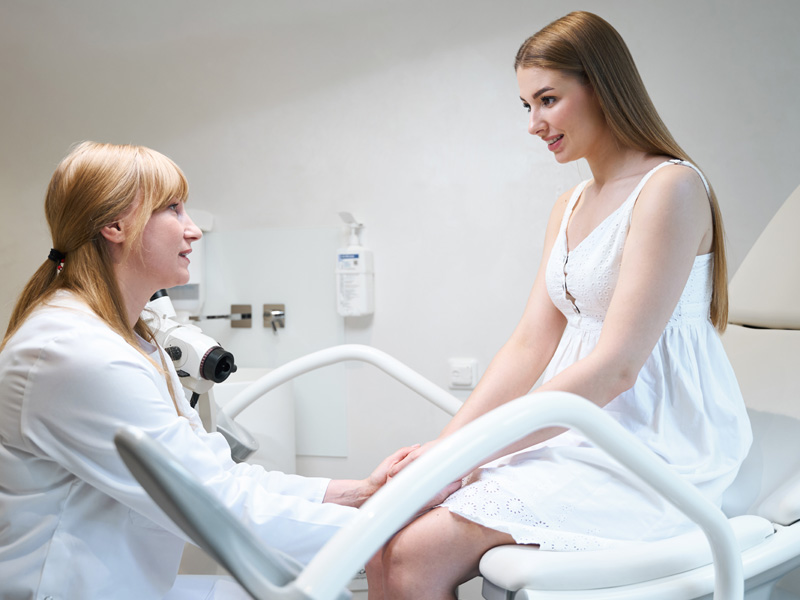Visiting an Obstetrician-Gynecologist (OBGYN) for the first time is a significant step in managing your reproductive and overall health. An OBGYN specializes in both obstetrics, which involves care during pregnancy, childbirth, and postpartum, and gynecology, which focuses on the health of the female reproductive system. These medical professionals are fundamental for the preventative care, diagnosis, and treatment of conditions specific to those who are assigned female at birth. Here’s more on what to expect for your first visit:
Discuss Gynecological Health
Your initial OBGYN visit often begins with a conversation about your medical history, lifestyle habits, and any concerns you may have about your gynecological health. This discussion sets the foundation for a comprehensive and personalized healthcare experience. Your provider might inquire about topics of sexual health, contraceptive use, and family medical history, particularly any history of reproductive health issues.
The OBGYN will ask about your menstrual cycle, including its frequency, duration, and any irregularities you’ve noticed. This is also an opportune time to express any specific concerns, like pelvic pain, unusual discharge, or other symptoms that are affecting you. Providing detailed information enables the doctor to address issues effectively and make recommendations for any needed treatments.
Complete Exams and Screenings
Screenings and exams are preventative tools meant to monitor and safeguard your reproductive health. A physical examination is a standard part of a first OBGYN visit, conducted to evaluate your health and identify potential issues early. Depending on your age, medical history, and reasons for the visit, screenings can include several components.
Some common exam steps of a first appointment are:
- General Physical Exam: Some appointments may begin with routine checks, including measuring your blood pressure, weight, and overall physical condition. This helps the physician gain a holistic understanding of your health.
- Pelvic Exam: A pelvic examination is central to assessing the health of the reproductive organs. During this procedure, the OBGYN examines the external and internal genitalia for signs of abnormalities or conditions, such as infections.
- Pap Smear: If age-appropriate, a pap smear may be conducted as part of the pelvic exam. This test screens for abnormal cervical cells that could indicate an increased risk of cervical cancer. It is generally quick and straightforward, often completed within minutes.
- Breast Exam: Some visits can include a breast examination to identify any unusual lumps or changes that require further evaluation.
Establish a Health Plan
Following the discussion and physical evaluation, your doctor works with you to establish a customized care plan. This plan takes into account your specific needs, whether your focus is contraception, menstrual health, or family planning. If you want to have a family, now or in the future, your provider will discuss your options.
If any screenings detect abnormalities, your doctor will outline the next steps. This can involve additional testing or specialist referrals. If lifestyle changes or medications are recommended, these will be explained in detail.
Schedule an OBGYN Appointment
Maintaining a regular schedule of appointments with your OBGYN is necessary for ongoing reproductive health. A yearly visit is generally recommended, though some circumstances may necessitate more frequent check-ups. Whether addressing specific symptoms or focusing on preventive care, an OBGYN visit is an integral part of managing your well-being. Now that you know what to expect, schedule an appointment today.
